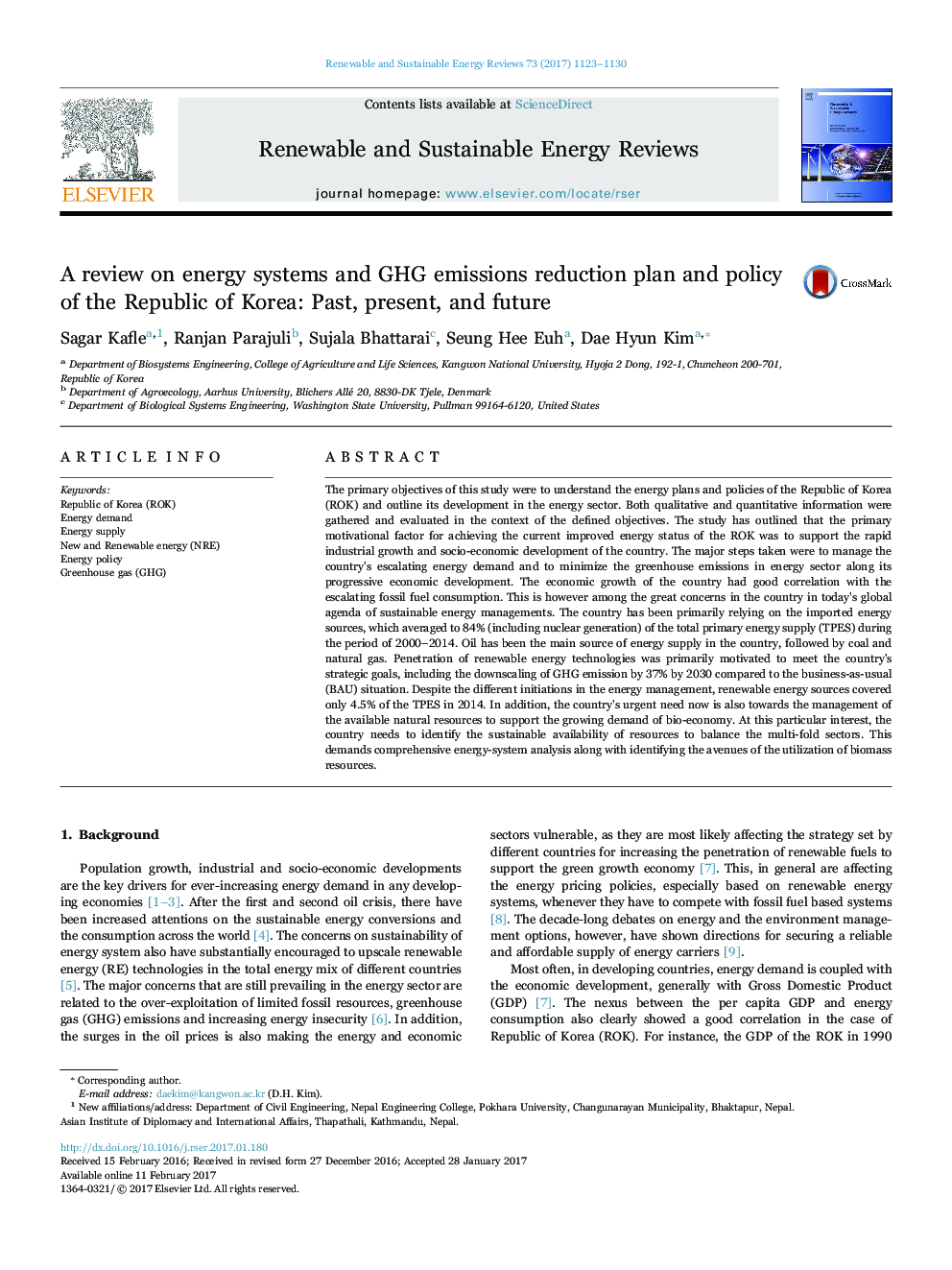| کد مقاله | کد نشریه | سال انتشار | مقاله انگلیسی | نسخه تمام متن |
|---|---|---|---|---|
| 5482324 | 1522313 | 2017 | 8 صفحه PDF | دانلود رایگان |
The primary objectives of this study were to understand the energy plans and policies of the Republic of Korea (ROK) and outline its development in the energy sector. Both qualitative and quantitative information were gathered and evaluated in the context of the defined objectives. The study has outlined that the primary motivational factor for achieving the current improved energy status of the ROK was to support the rapid industrial growth and socio-economic development of the country. The major steps taken were to manage the country's escalating energy demand and to minimize the greenhouse emissions in energy sector along its progressive economic development. The economic growth of the country had good correlation with the escalating fossil fuel consumption. This is however among the great concerns in the country in today's global agenda of sustainable energy managements. The country has been primarily relying on the imported energy sources, which averaged to 84% (including nuclear generation) of the total primary energy supply (TPES) during the period of 2000-2014. Oil has been the main source of energy supply in the country, followed by coal and natural gas. Penetration of renewable energy technologies was primarily motivated to meet the country's strategic goals, including the downscaling of GHG emission by 37% by 2030 compared to the business-as-usual (BAU) situation. Despite the different initiations in the energy management, renewable energy sources covered only 4.5% of the TPES in 2014. In addition, the country's urgent need now is also towards the management of the available natural resources to support the growing demand of bio-economy. At this particular interest, the country needs to identify the sustainable availability of resources to balance the multi-fold sectors. This demands comprehensive energy-system analysis along with identifying the avenues of the utilization of biomass resources.
Journal: Renewable and Sustainable Energy Reviews - Volume 73, June 2017, Pages 1123-1130
